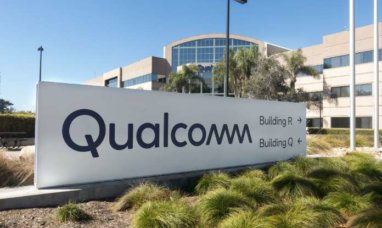With a market capitalization of over $2.7 trillion, Apple (NASDAQ:AAPL) currently stands as the world’s largest company. If we were to liken it to a nation, Apple would be the eighth-largest in the world, based on 2022 nominal GDP. But the question that looms large is whether Apple, under the leadership of Tim Cook, can preserve its monumental valuation and hold onto its status as the world’s largest company through 2025.
Apple’s Ascent to the Top
Back in 2011, Apple climbed to the summit, dethroning the energy giant ExxonMobil (NYSE:XOM) and securing its position as the world’s most valuable company. Since then, it has managed to maintain this status, albeit with a few short-lived exceptions. For instance, in October 2021, Microsoft (NASDAQ:MSFT) briefly claimed the top spot, and in May 2022, Saudi Aramco briefly took over amidst surging oil prices. However, these moments were fleeting, as Apple quickly regained its position.
Apple boasts several remarkable achievements. In July 2023, the tech giant achieved a historic milestone by reaching a closing market capitalization exceeding $3 trillion. This marked another milestone for the Cupertino-based company, which previously set records as the first to attain a market capitalization of $1 trillion and $2 trillion.
It’s worth noting that Apple holds a significant place in Berkshire Hathaway’s (NYSE:BRK.B) portfolio. Warren Buffett, the chairman of Berkshire Hathaway, began acquiring Apple shares in the first quarter of 2016. Today, Apple stands as the conglomerate’s largest holding, with nearly a 5.9% stake, making Berkshire Hathaway the second-largest shareholder in Apple, following Vanguard.
Predicting Apple’s Stock Price in 2025: Key Influencing Factors
Barring a significant global macroeconomic shock in the coming years, the outlook for Apple’s stock appears positive. Wall Street analysts share this optimism, with expectations of the stock surpassing its current levels by the end of 2025. Projections include a 12-month target price of $205.84, with an even higher Street-high target price of $240.
Here are the critical factors that could shape the performance of Apple’s stock in the years ahead:
U.S.-China Relations and Demand in China
The growing tensions between the United States and China pose a risk for Apple, given that China is its second-largest market. Jefferies analysts have noted that Huawei, which faced severe setbacks due to U.S. restrictions, has reemerged and overtaken Apple in the Chinese smartphone market. Any decline in demand for Apple products in China, amid the escalating rivalry between the two countries, could jeopardize Apple’s position as the world’s most valuable company.
The Potential of the Indian Market
Apple has recently opened its first two retail stores in India, a country that has now become one of the top five markets for iPhones. India, with its burgeoning middle class and population surpassing China’s, offers substantial growth potential. While Android devices currently dominate the Indian smartphone market, Apple aims to increase its iPhone market share in this lucrative market.
Monetizing the Existing Apple User Base
Apple’s expanding user base, which has crossed the 2 billion device mark, presents a long-term opportunity. With over 1 billion paid subscriptions, Apple has the potential for recurring revenues. This large user base also serves as a captive audience for Apple’s diversification into various industries, including financial services and healthcare. In 2024, the introduction of augmented reality headsets is expected to further expand Apple’s market reach.
Electric and Autonomous Cars
Apple has been quietly working on electric and autonomous cars under the project codenamed “Titan.” Although details about the project have been mostly speculative, progress in this area could significantly boost Apple’s stock. The market for electric and autonomous vehicles offers vast potential, far surpassing that of the smartphone market.
Apple’s Role in AI
While Apple hasn’t emphasized artificial intelligence (AI) as prominently as some tech giants, it is making significant investments in AI technologies. Tim Cook has stressed the fundamental role of AI and machine learning in Apple’s products. These investments in AI, including generative AI, are integral to the company’s future and could further drive its success.
Potential Challengers to Apple’s Dominance
While it seems likely that Apple will continue to maintain its position as the most valuable company until 2025, several strong contenders could potentially challenge its supremacy:
Microsoft Corporation
Microsoft (NASDAQ:MSFT) has been strategically expanding its market through organic growth and acquisitions, such as the acquisition of Activision-Blizzard and investments in companies like OpenAI, the parent company of ChatGPT. Currently the second-largest company globally, Microsoft poses a formidable challenge to Apple’s dominance.
Tesla Inc.
Elon Musk, CEO of Tesla (NASDAQ:TSLA), believes that the company’s market capitalization could surpass the combined market caps of Apple and Saudi Aramco. With the highest market cap among automakers and advancements in autonomous driving, Tesla has the potential to become the most valued company.
Amazon.com
Despite its stock underperforming in comparison to other tech peers in recent years, Amazon (NASDAQ:AMZN) remains a strong contender for the title of the world’s largest company. Its diversified presence in e-commerce, cloud services, streaming, and digital advertising could be a game-changer.
The path forward for Apple is rife with opportunities and challenges, and the competitive landscape in the tech industry is ever-evolving. As 2025 approaches, investors and enthusiasts will keenly watch to see if Apple can maintain its coveted top position.
Featured Image: Unsplash















